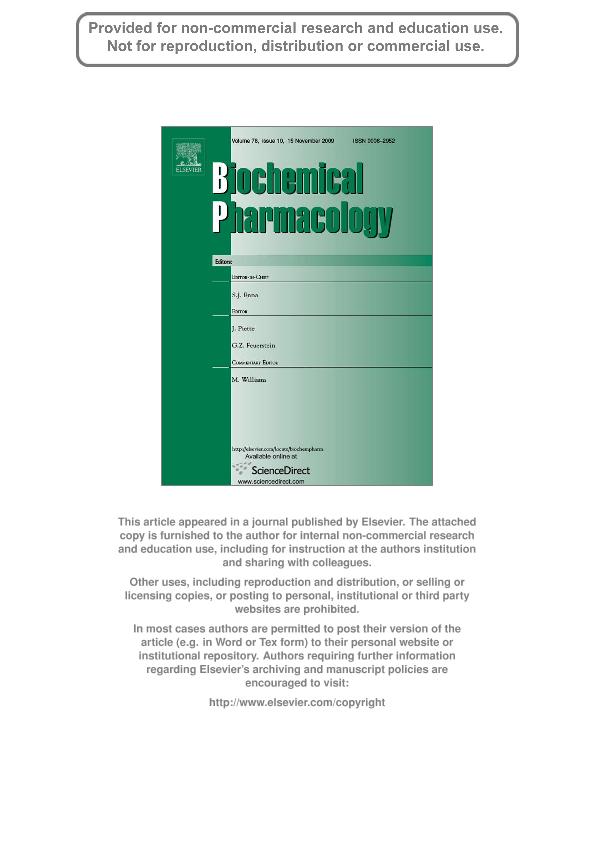Artículo
15-Deoxi-Δ12,14-prostaglandin J2 is a tubulin-binding agent that destabilizes microtubules and induces mitotic arrest
Cocca, Claudia Marcela ; Dorado, Jorge; Calvo, Enrique; López, Juan Antonio; Santos, Angel; Perez Castillo, Ana
; Dorado, Jorge; Calvo, Enrique; López, Juan Antonio; Santos, Angel; Perez Castillo, Ana
 ; Dorado, Jorge; Calvo, Enrique; López, Juan Antonio; Santos, Angel; Perez Castillo, Ana
; Dorado, Jorge; Calvo, Enrique; López, Juan Antonio; Santos, Angel; Perez Castillo, Ana
Fecha de publicación:
11/2009
Editorial:
Pergamon-Elsevier Science Ltd
Revista:
Biochemical Pharmacology
ISSN:
0006-2952
Idioma:
Inglés
Tipo de recurso:
Artículo publicado
Clasificación temática:
Resumen
15-Deoxi-Delta(12,14)-prostaglandin J(2) (15d-PGJ(2)) is known to play an important role in the pathophysiology of carcinogenesis, however, the molecular mechanisms underlying these effects are not yet fully understood. Recently, we have shown that 15d-PGJ(2) is a potent inducer of breast cancer cell death and that this effect is associated with a disruption of the microtubule cytoskeletal network. Here, we show that treatment of the MCF-7 breast cancer cell line with 15d-PGJ(2) induces an accumulation of cells in the G(2)/M compartment of the cell cycle and a marked disruption of the microtubule network. 15d-PGJ(2) treatment causes mitotic abnormalities that consist of failure to form a stable metaphase plate, incapacity to progress through anaphase, and failure to complete cytokinesis. 15d-PGJ(2) binds to tubulin through the formation of a covalent adduct with at least four cysteine residues in alpha- and beta-tubulin, as detected by hybrid triple-quadrupole mass spectrometry analysis. Overall, these results support the hypothesis that microtubule disruption and mitotic arrest, as a consequence of the binding of 15d-PGJ(2) to tubulin, can represent one important pathway leading to breast cancer cell death.
Palabras clave:
15D-PGJ2
,
CANCER
,
CELL DEATH
,
CYTOSKELETON
,
MITOSIS
,
TUBULIN
Archivos asociados
Licencia
Identificadores
Colecciones
Articulos(OCA HOUSSAY)
Articulos de OFICINA DE COORDINACION ADMINISTRATIVA HOUSSAY
Articulos de OFICINA DE COORDINACION ADMINISTRATIVA HOUSSAY
Citación
Cocca, Claudia Marcela; Dorado, Jorge; Calvo, Enrique; López, Juan Antonio; Santos, Angel; et al.; 15-Deoxi-Δ12,14-prostaglandin J2 is a tubulin-binding agent that destabilizes microtubules and induces mitotic arrest; Pergamon-Elsevier Science Ltd; Biochemical Pharmacology; 78; 10; 11-2009; 1330-1339
Compartir
Altmétricas



